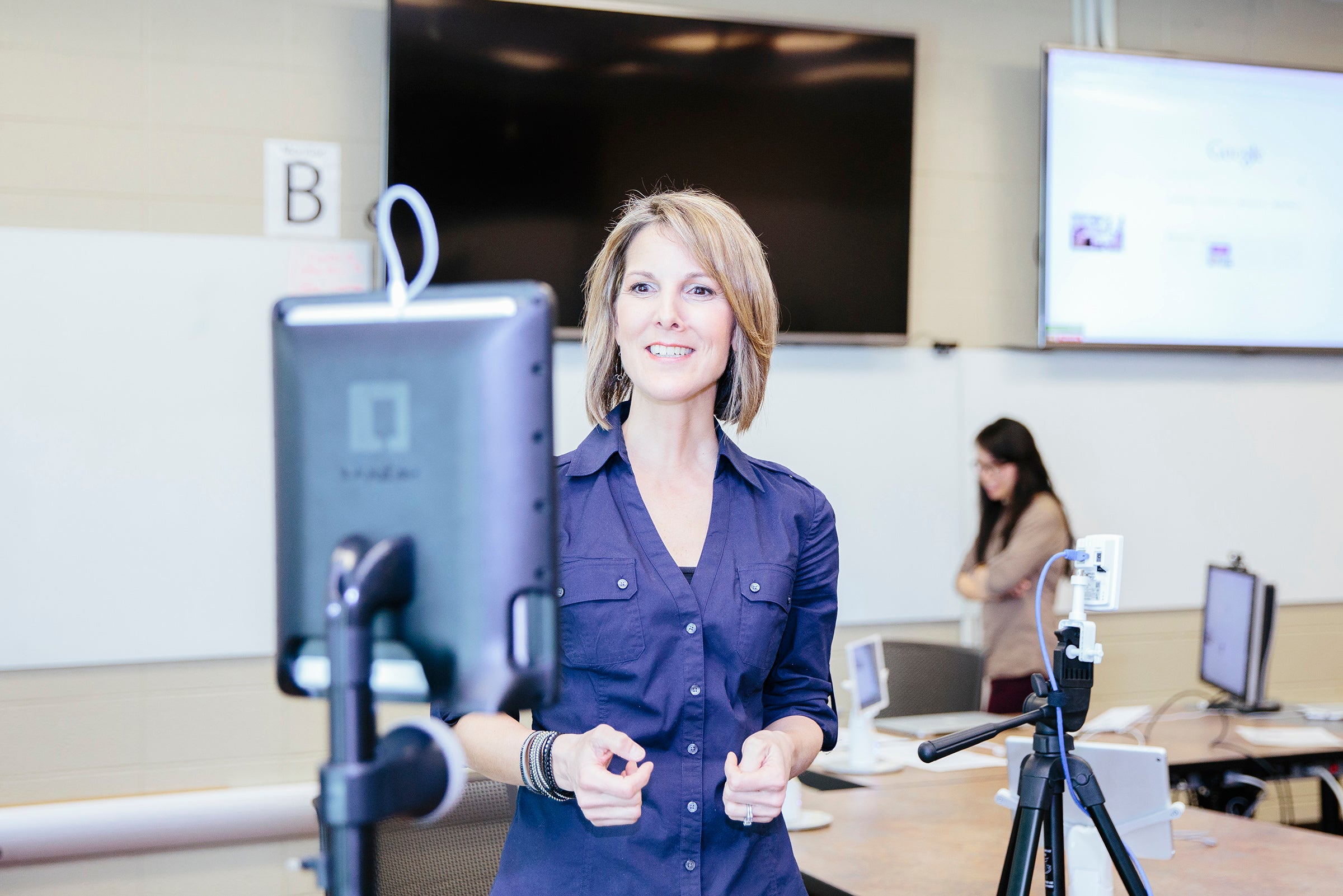Your support helps us to tell the story
From reproductive rights to climate change to Big Tech, The Independent is on the ground when the story is developing. Whether it's investigating the financials of Elon Musk's pro-Trump PAC or producing our latest documentary, 'The A Word', which shines a light on the American women fighting for reproductive rights, we know how important it is to parse out the facts from the messaging.
At such a critical moment in US history, we need reporters on the ground. Your donation allows us to keep sending journalists to speak to both sides of the story.
The Independent is trusted by Americans across the entire political spectrum. And unlike many other quality news outlets, we choose not to lock Americans out of our reporting and analysis with paywalls. We believe quality journalism should be available to everyone, paid for by those who can afford it.
Your support makes all the difference.Facebook helps students learn complex subjects – like science – and should possibly be used as a serious learning tool, a first-of-its-kind study has suggested.
Spearheaded by Michigan State University’s Dr Christine Greenhow – ‘one of the most social media-savvy professors in America’ – the professor found that high school and university students engaged in energetic and intelligent debate, about scientific issues, in a voluntary Facebook forum.
The assistant professor of educational psychology and technology said, in her career, she found it challenging to “take students’ spark of interest in something and develop it in ways that can serve them.”
In a time when time-strapped classrooms don’t have the time to teach the subjects, she added: “If students had these kinds of niche communities to be part of – in addition to their formal curriculum – that could really provide a rich environment for them.”
For the study, students aged 16-25 voluntarily joined a Facebook group which dealt with climate-related science news – such as coal-burning regulations and environmentally friendly housing.

Dr Greenhow analysed the students’ activity on the group and found their discussion on various science issues to be ‘largely on-topic, civil and sophisticated’ and said the students flourished because social media is already a part of their everyday lives.
She also said the sites can be less hierarchal and forced than if such a forum were to be overseen by an instructor.
Past research into the topic has looked at online forums run by a teacher and found mixed results when it came to student engagement and the quality of debate taking place.
Now, the doctor believes the findings make a good case for popular social sites like Facebook to be as learning tools alongside a more traditional curriculum.
At only 11-years-old, Facebook has more than a billion users worldwide and, as of February 2015, reached a market capitalisation $212bn – but critics say excessive use of the site can distract young users from their studies, cause feelings of isolation and depression, and makes cyber-bullying too common.
Dr Greenhow, however, hit-back at these claims, saying any social network site can be misused. She added: “There’s also a significant and underexplored opportunity to develop these spaces as forums for learning, healthy academic debate and career development.”

Join our commenting forum
Join thought-provoking conversations, follow other Independent readers and see their replies
Comments